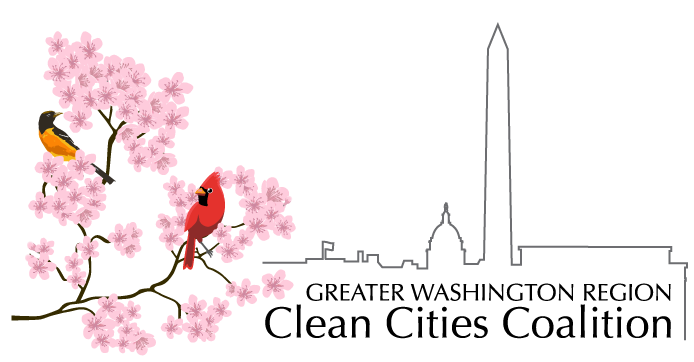March 29, 2022
Dear Chair Cheh and members of the Transportation and Environment Committee,
Good morning.
My name is Antoine M. Thompson, Executive Director of the Greater Washington Region Clean Cities Coalition (GWRCCC). I am also a homeowner in Upper Marlboro, Maryland. Our Coalition is one of the 90+ Clean Cities Coalitions around the country supported by the US Department of Energy. We are a public-private partnership composed of representatives of the Metropolitan Washington Council of Governments, the District government, regional governments, national trade associations, public and private companies and public utility companies including Washington Gas. We are headquartered in the District of Columbia and have programmatic responsibility for the region including District of Columbia, Northern Virginia and Maryland.
The mission of our Coalition is to promote the use of clean domestic fuels to assure our nation’s and region’s climate security, energy independence and clean air by reducing our dependence on gasoline and diesel transportation fuels.
I personally have been engaged in the clean transportation work for more than 20 years, including being a New York State Senator and the former chair of the NY Senate Standing Committee on Environmental Conservation championing green initiatives, climate justice, and expanding access to and investments in public transit.
I am here to give testimony regarding the proposed city budget.
I would like to thank the Council and the various departments for their leadership in promoting alternative fuels in transportation. Thanks also to the Department of Energy for its past and present efforts in building alternative fuel corridors as well as to DOT, DDOT, DPW and DC Water for their support of EV charging, circulator buses and promoting biodiesel in vehicles.
First of all, GWRCCC strives to ensure a just and equitable clean energy transition. It is important to accelerate the investment of local dollars to address equity issues in the district including access to clean air in vulnerable and underserved communities. We know that food deserts and banking deserts exist in DC, but now there also exists charging deserts. Improving air quality in DC for all communities requires public investment in improving public charging throughout DC. GWRCCC asks the city to invest local resources into ensuring access to EV charging in DC’s public spaces in the next 24 months by installing charging stations at public parks, recreation centers, schools, libraries, senior centers, government buildings and train stations. We would like the Council and the Mayor to fund two pilot curbside charging projects, including signage indicating that access to charging is free and public.
Second, GWRCCC asks that the city invest in our SAVE Program. The SAVE (Support and Assistance for Vehicle Electrification) Program would provide financial assistance to homeowners, small businesses, individuals, and non-profits to retrofit homes and businesses for EV charging. SAVE would also provide financial assistance for individuals and businesses to purchase new and used electric vehicles.
Finally, GWRCCC asks the committee to create an Environmental Equity Commission to report to the council and the mayor annually on its environmental equity findings.
Thank you again for your time, your leadership, and your assistance.
STAY IN THE LOOP
